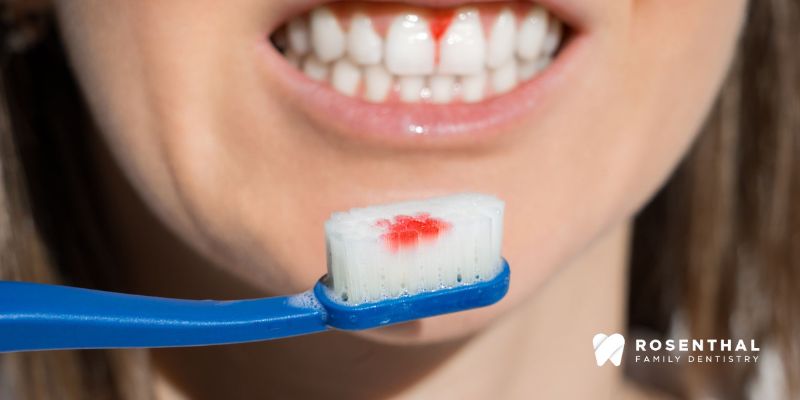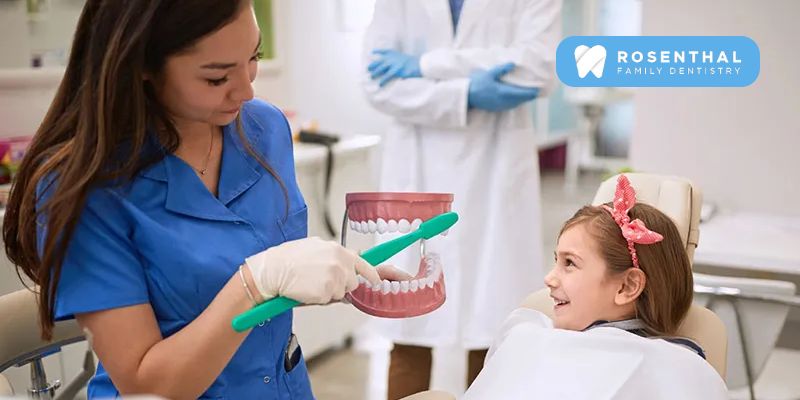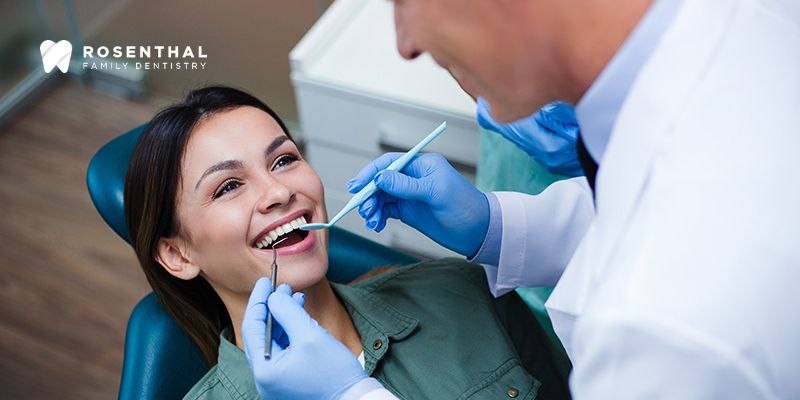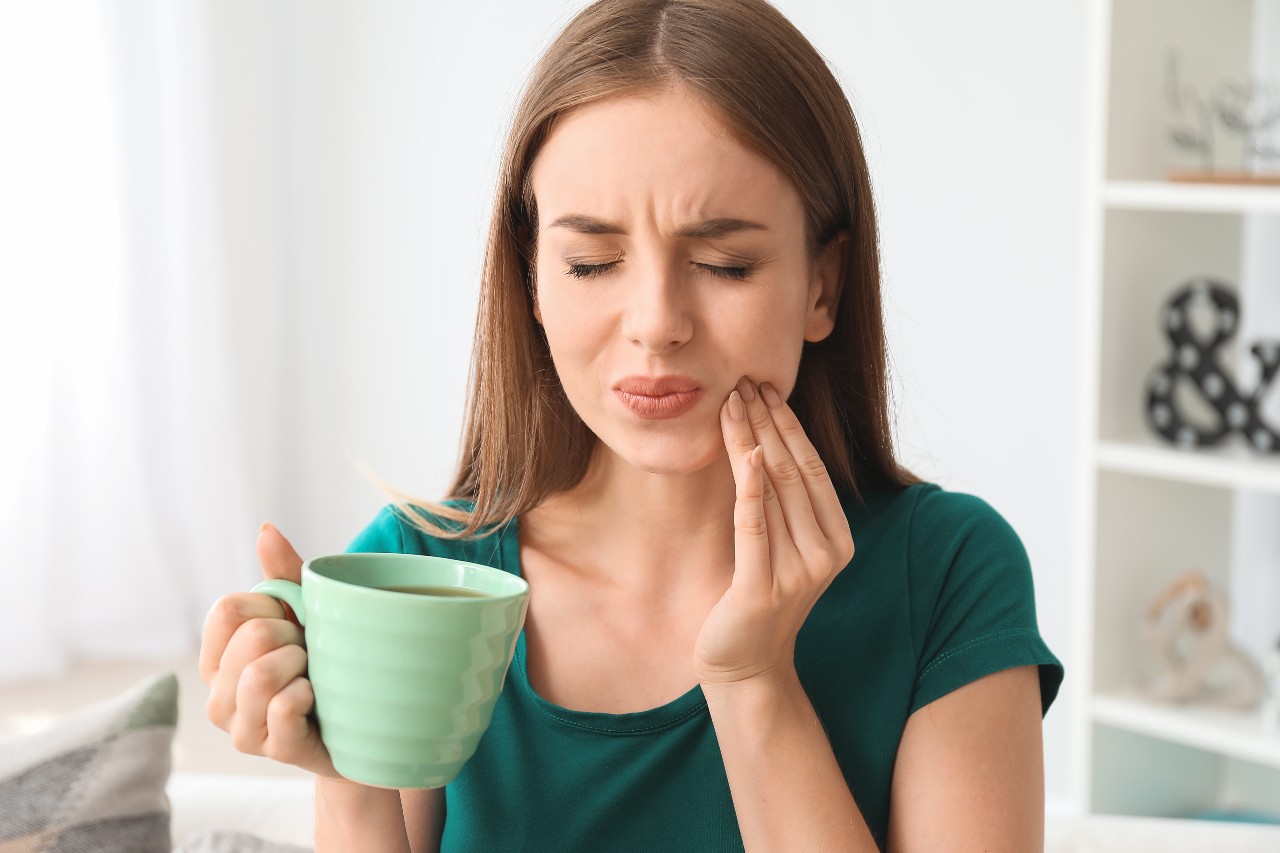Maintaining good oral health is essential for overall well-being, and routine dental exams and cleanings are crucial in achieving this goal. Here are several reasons why these regular appointments are vital for preserving your oral health.
The Importance of Routine Dental Exams and Cleanings
1. Early Detection of Dental Issues
Routine dental exams allow dentists to detect potential issues in their early stages before they escalate into more significant problems. During these exams, dentists thoroughly examine your teeth, gums, and mouth for signs of decay, gum disease, oral cancer, and other health issues. By identifying problems early on, dentists can provide timely treatment, preventing the need for more invasive procedures down the line. This proactive approach not only saves you from potential discomfort but also helps you avoid extensive dental treatments that may be costly and time-consuming.
Moreover, routine dental cleanings help remove plaque and tartar buildup, major contributors to tooth decay and gum disease. Even with regular brushing and flossing, some mouth areas can be difficult to clean effectively. Professional dental cleanings ensure that these hard-to-reach areas are thoroughly cleaned, reducing the risk of developing cavities and gum inflammation. By investing in regular dental exams and cleanings, you are investing in the long-term health of your teeth and gums, ultimately saving yourself from more significant oral health issues in the future.
2. Prevention of Gum Disease

Gum disease, also known as periodontal disease, is a prevalent but often preventable condition that can lead to tooth loss and other serious health problems if left untreated. Regular dental exams and cleanings are essential for preventing gum disease or catching it in its early stages when it is more manageable. During cleanings, dental hygienists remove plaque and tartar buildup along the gumline, reducing the risk of gum inflammation and infection risk. Additionally, dentists can assess the health of your gums and guide proper oral hygiene techniques to maintain healthy gums between appointments.
Furthermore, routine dental exams allow dentists to identify risk factors for gum disease, such as smoking, poor nutrition, and certain medical conditions like diabetes. By addressing these risk factors and providing personalized oral health advice, dentists can help patients reduce their likelihood of developing gum disease. Regular dental exams and cleanings are essential to a preventive oral health care routine, helping you maintain healthy gums and teeth for years.
3. Maintaining Overall Health
The health of your mouth is closely linked to your overall health. Poor oral hygiene can contribute to various systemic conditions, including heart disease, diabetes, and respiratory infections. Routine dental exams and cleanings help prevent oral health issues and contribute to your overall well-being. For instance, regular cleanings can reduce the risk of bacterial infections in the mouth that could spread to other body parts. Moreover, studies have shown that treating gum disease can improve other health conditions, such as diabetes control.
You proactively safeguard your overall health by prioritizing routine dental exams and cleanings. Dentists are trained to detect signs of systemic health issues during oral exams, making these appointments crucial for maintaining oral health and identifying potential health concerns early on. Your dentist may even recommend lifestyle changes or refer you to other healthcare professionals for further evaluation if they notice any signs of underlying health issues during your dental exam.
4. Customized Oral Health Education

In addition to providing professional cleaning and treatment, routine dental exams offer an opportunity for personalized oral health education. Dentists and dental hygienists can provide valuable guidance on proper brushing and flossing techniques and recommend oral care products tailored to your needs. They can also offer advice on diet and lifestyle factors impacting oral health, such as limiting sugary foods and drinks or quitting smoking.
Moreover, routine exams allow dentists to monitor progress and provide specialized care as needed for patients with specific dental concerns or conditions, such as braces or dental implants. Whether seeking advice on maintaining a bright smile or managing a chronic dental issue, your dental team can offer valuable insights and support during routine exams. By incorporating their recommendations into your daily routine, you can optimize your oral health and reduce the risk of dental problems in the future.
5. Preserving Oral Functionality
Beyond aesthetics, routine dental exams and cleanings are crucial for preserving the functionality of your mouth. Healthy teeth and gums are essential for proper chewing, speaking, and oral function. When left untreated, dental issues such as decay and gum disease can lead to tooth loss, significantly impacting your ability to eat and speak comfortably.
Regular dental exams allow dentists to identify any signs of tooth decay or damage early on, enabling them to provide timely interventions such as fillings or crowns to restore the affected teeth. Additionally, cleanings help remove plaque and tartar buildup that can contribute to tooth decay and gum disease, thus preserving the integrity of your teeth and gums.
By maintaining good oral health through routine exams and cleanings, you can ensure that your mouth functions optimally, allowing you to enjoy all aspects of daily life without discomfort or limitations.
6. Cost-Effective Oral Care
While some may view routine dental exams and cleanings as optional, they are, in fact, a wise investment in your oral health and financial well-being in the long run. Prevention is always better than cure when it comes to dental care. By detecting and addressing dental issues early through routine exams, you can avoid needing more extensive and costly treatments later.
For example, a small cavity caught early during a routine exam can be treated with a simple filling. In contrast, if left untreated, it may progress to the point where a root canal or extraction is necessary. Similarly, regular cleanings can prevent gum disease, which, if left untreated, can lead to costly periodontal treatments and even tooth loss.
Ultimately, investing in routine dental exams and cleanings is a proactive measure that can save you both time and money by preventing the need for more invasive and expensive dental procedures in the future.
Conclusion
In summary, routine dental exams and cleanings are essential for preserving oral health and overall well-being. These appointments offer numerous benefits beyond a bright smile, from early detection of dental issues to preserving oral functionality. By prioritizing regular dental care, you can maintain healthy teeth and gums, prevent costly dental problems, and enjoy a lifetime of optimal oral health.



